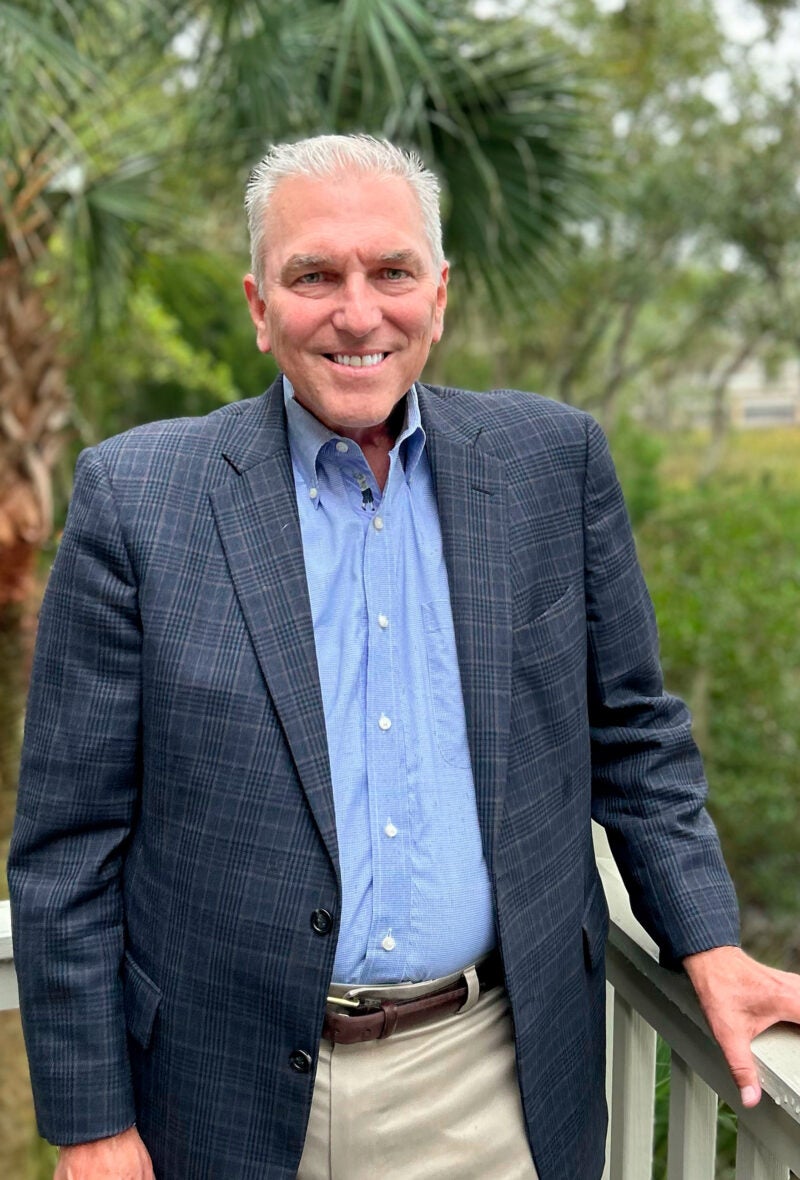When Cam Findlay ’87 accepted an offer 10 years ago to serve as general counsel at Archer Daniels Midland, his sister (also a lawyer) questioned his decision. “It’s the only company I’ve joined that had a bestselling book and a major studio movie starring Matt Damon about its previous legal problems,” Findlay says. “The Informant!” famously documented ADM’s role in a global conspiracy in the 1990s to hike prices of citric acid and of lysine, an animal feed additive; ultimately, the company was fined $100 million by the Department of Justice and paid millions more in class-action settlements.
When Findlay arrived in 2013, another scandal had already been brewing: One of ADM’s subsidiaries stood accused of paying bribes through vendors to Ukrainian government officials to obtain value-added tax refunds. Shortly after Findlay joined ADM, the company pleaded guilty to conspiracy to violate the Foreign Corrupt Practices Act. “We resolved that issue as quickly as possible and worked hard to enhance our compliance policies, programs, and training,” he says.
Findlay retired from his role at ADM this fall; he can look back on a career devoted to efficiently and effectively addressing the sorts of complex, headline-making legal headaches that would send most lawyers running in the other direction. His first general counsel job was at insurance giant Aon Corporation, which he joined in 2003. Almost immediately, “we got a subpoena from Eliot Spitzer [’84],” he says. “I started in August,” he adds, and when the subpoena from the New York Attorney General’s Office arrived a few months later, “that threw us into an existential crisis.” In an industry where trust is fundamental, it was revealed that some of Aon’s representatives were accepting undisclosed contingent commissions from underwriters for agreeing to steer business their way. In addition to consolidating and restructuring Aon’s sprawling legal department, Findlay introduced disclosure policies. After leaving the company in 2009, he brought the same straightforward approach to his role as chief legal counsel at medical device giant Medtronic, where its products and the health care system’s inherent complexity generated legal actions ranging from mass tort cases to IP to securities class actions. “Medtronic was a good, solid company — it was just a matter of managing some of these very, very big legal matters,” Findlay says.
The secret sauce behind repeatedly addressing crises and implementing reforms draws on the simple precept of leading by example, Findlay says: “Act with integrity and don’t get anywhere near the line. If you want to go to the Super Bowl or something similar,” he adds, instead of accepting a gift, “write the check and you’ll never have to answer a question about it in your life.” He also cites the time-honored management principle of giving employees agency in the work they do every day: “Hire good people, trust them, and avoid looking over their shoulder.” In a global company like ADM, he adds, that trust was built on having an open-door policy for feedback in addition to traveling the world to get to know members of the legal team in person.
“Hire good people, trust them, and avoid looking over their shoulder.”
Born in Chicago, Findlay grew up in his mother’s hometown of Elkhart, Indiana. When his sixth-grade teacher asked the class to write a biography that looked back on their lives, Findlay correctly predicted that he would attend Harvard Law School and become a lawyer. “It was a good choice as I think about my limited skill set,” he laughs. “I think I’m a good writer and I like to speak on my feet, but I have no engineering, mathematical, or artistic skills.” He also wrote that he’d get involved in politics — another correct prediction, as Findlay served as a political appointee in two administrations, first as deputy assistant to President George H.W. Bush and then as deputy secretary in the Department of Labor under President George W. Bush.
Post-retirement, Findlay is still considering his options; currently he continues to serve as a trustee at Northwestern University, and on the board of Chicago’s Steppenwolf Theatre Company. Teaching is one possibility: “In the 1990s I taught a course at Northwestern,” he says. “We considered some of the theoretical underpinnings of the separation of powers, from Locke to Montesquieu and other philosophers; I’d also bring in speakers who had served in government to offer their perspective from a ‘practice’ point of view. I really enjoyed engaging with the students on some of the cases we read and talking through the finer points of how decisions were made.”
More immediately, however, Findlay’s plans include international travel, starting with a trip to England for a reunion at Oxford University, where he studied as a Marshall Scholar. “I’ve been to around 55 countries, but there are still so many parts of the world I haven’t seen,” he says. “I’m looking forward to having a bit more time to explore.”
